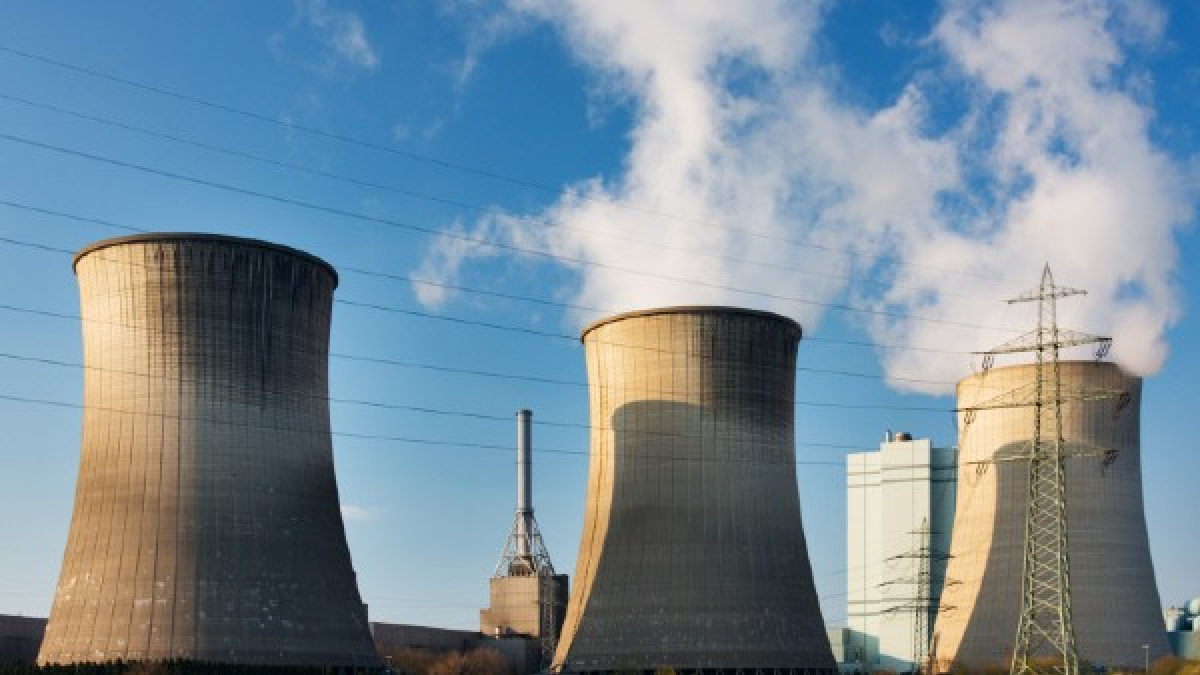Ukraine and allies boycott Paralympics opening over Russia and Belarus athletes
Ukraine’s National Paralympic Committee has announced it will boycott the opening ceremony of the Milano Cortina 2026 Paralympics in Verona on 6 Mar...

Kazakhstan has announced a new phase in construction plans for its first nuclear power plant. The power plant is expected to be operational by 2035.
The Chairman of the Agency of the Republic of Kazakhstan for Atomic Energy, Almasadam Satkaliev, reported that Rosatom has commenced design and survey work.
The Russian state-owned nuclear corporation was selected in June, to lead an international consortium to build Kazakhstan’s first planned nuclear power plant.
So far over 70 boreholes of varying depths, ranging from 30 to 150 metres, have already been drilled, and soil samples have been collected and are currently under laboratory analysis.
Preliminary seismic and cartographic surveys have also been conducted. All collected data will feed into the techno-economic assessment and form the basis of detailed engineering and project documentation.
According to Satkaliev, in line with the standards of the International Atomic Energy Agency (IAEA), preliminary research is expected to take around 18 months.
During this period, the final coordinates for the plant’s location will be determined, along with the planning of core engineering infrastructure and the layout of the worker settlement.
Particular attention will be given to local content criteria: some equipment will be manufactured in Kazakhstan, while other components will be imported.
These decisions will be incorporated directly into the project documentation.
The official commencement of construction for the first nuclear power plant took place in early August near the village of Ulken in the Almaty Region.
The project received public support following an October 2024 referendum which saw 71% of participants voting in favour of it.
President Kassym-Jomart Tokayev has previously stated that not one, but three nuclear power plants are planned.
He emphasised that the creation of a new energy sector is strategically important for the country, providing a solid foundation for dynamic economic development for decades to come.
The second and third plants are expected to be constructed by the Chinese company CNNC.
Some observers note that these plants may be completed faster and at a lower cost than the Russian project.
At the same time, some analysts have expressed doubts about Moscow’s ability to meet long-term commitments amid economic pressures resulting from sanctions and military conflict.
Opponents of the project have highlighted the high cost of construction and potential environmental risks.
They also warn of the danger of deepening Kazakhstan’s economic, energy, and political dependence on foreign companies and states involved in the project.
Israel is preparing for the possibility of receiving a green light from the United States to launch strikes against Iran’s ballistic missile system, according to Israel’s public broadcaster KAN.
Aghdam’s Qarabag FK experienced a 6–1 defeat to England’s Newcastle United in the first leg of their UEFA Champions League play-off tie in Azerbaijan's capital Baku Wednesday evening (18 February).
U.S. President Donald Trump’s 'Board of Peace' will hold its first leaders’ meeting on Thursday (19 February) in Washington, D.C., launching an initiative aimed at stabilising Gaza and addressing global conflicts. It's drawn support from regional powers but refusals from several EU countries.
The Board of Peace will be "looking over the United Nations," said U.S. President Donald Trump at the inaugural Washington meeting, where representatives from over 20 countries gathered to unveil plans for Gaza’s reconstruction and coordinate international support.
Russian President Vladimir Putin met Cuban Foreign Minister Bruno Rodriguez in the Kremlin on Wednesday, telling him that new restrictions imposed on the communist-run island were unacceptable.
Uzbekistan's president Shavkat Mirziyoyev has held a series of high-level meetings in the U.S. aimed at strengthening bilateral economic and strategic ties between the two countries.
Türkiye has signalled readiness to contribute to a proposed Gaza stabilisation force during the inaugural Board of Peace meeting on Thursday (19 February), but according to former Turkish diplomat Mehmet Öğütçü, the decisive factor will be whether Israel and the United States agree on Ankara’s role.
Türkiye is prepared to contribute troops to a proposed international stabilisation force for Gaza, Turkish Foreign Minister Hakan Fidan said on Thursday.
Iran has warned it will respond “decisively” if subjected to military aggression, saying U.S. President Donald Trump’s rhetoric signals “a real risk of military aggression”.
The U.S. government has signed an agreement with Uzbekistan to secure better access to the Central Asian country's critical minerals, as U.S. President Donald Trump moves to counter China's dominance of crucial resources and their supply chains.
You can download the AnewZ application from Play Store and the App Store.

What is your opinion on this topic?
Leave the first comment